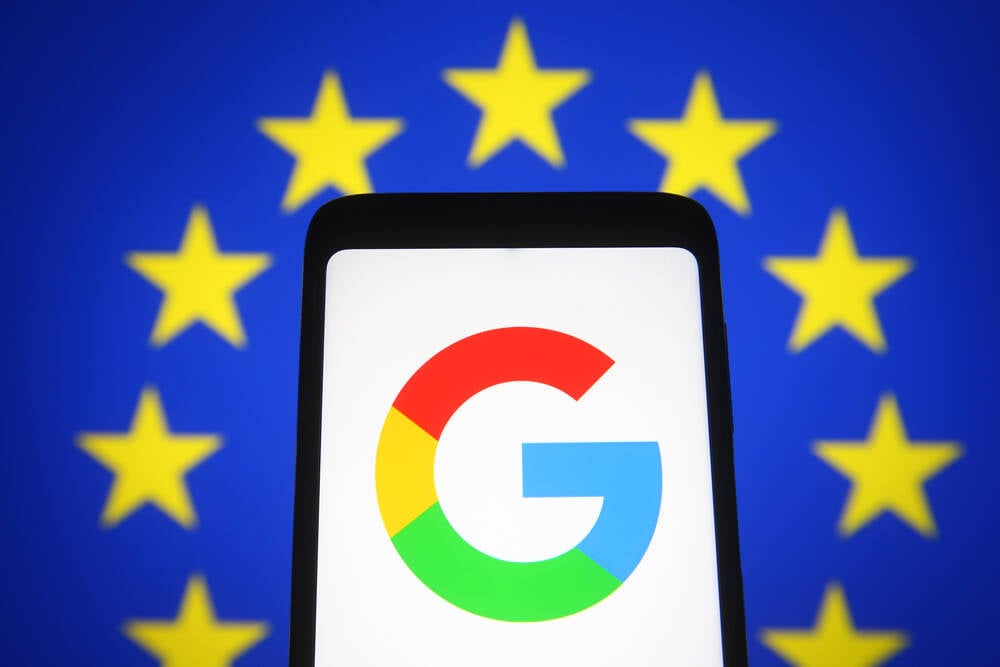Google Dresses Up Services For The EU's Digital Markets Act

On Tuesday, Google elaborated on its efforts to comply with the European Union's Digital Markets Act (DMA) – a set of competition obligations that take effect on Thursday.
The DMA is a law that aims to increase competition by designating dominant tech firms as "gatekeepers" and requiring them to accommodate competitors. In September, the European Commission identified six gatekeepers – Alphabet, Amazon, Apple, ByteDance, Meta, and Microsoft – each of which must make business and product changes that lower barriers imposed through platform rules.
Two months ago, the Chocolate Factory previewed potential business practice and interface revisions – and with only one more day to get its house in order, the search ad biz wants everyone to know how much work had to be done to meet the DMA requirements.
"The changes that we have made are the result of intensive work over many months from engineers, researchers, product managers and product designers from across the company," declared Oliver Bethell, director of competition for Google.
Google's tone is more measured than that of Apple – another of the tech titans saddled with gatekeeper obligations under the DMA.
The Fruit Cart, when it tipped its notional concessions in January, made much of the "new avenues for malware, fraud and scams, illicit and harmful content, and other privacy and security threats" that DMA-mandated support for third-party payment processing and app stores would allegedly bring.
Apple even went so far as to threaten it would stop supporting Home Screen web apps (Progressive Web Apps) in Europe because the ostensibly necessary security coding would be impractical, given the other work required to respond to the DMA. Faced with an outcry, the iBiz later reversed course.
The company today delivered iOS and iPadOS 17.4, bringing its iPhones and iPads into compliance with the DMA.
Radical changes ahead
Even if Google's Bethell isn't moaning quite so loudly, he wants it known that the search firm's aim "to build products that are helpful, innovative and secure" may change drastically, because of the burden of complying with the law.
"A number of the new rules involve difficult trade-offs that will impact the people and businesses who use our products," lamented Bethell. "For example, changes to our Search results may send more traffic to large intermediaries and aggregators, and less traffic to direct suppliers like hotels, airlines, merchants and restaurants."
For consumers, he noted, that means certain recommendation features across different products won't work the same way anymore.
The consequence of these changes for Google Search in Europe will be a different search page layout, with "a new carousel rich result for travel, local, and shopping queries" and "dedicated aggregator units that include links to aggregator sites from across the web." The search biz will also remove Google Flights data from search results pages – its response to flight-related queries in Europe will involve data from airlines' websites.
Android devices will offer users in the European Economic Area (the EU plus Iceland, Liechtenstein and Norway) new browser choice and search choice screens on setup, and those using Chrome on non-Android platforms in the region will see a separate search choice screen.
Those using Google services in Europe – Search, YouTube, Ad services, Google Play, Chrome, Google Shopping, and Google Maps – will also be able to choose whether or not to keep those services linked so that they share data.
To meet the DMA's data portability requirements with regard to third parties, Google is working on a Data Portability API for developers.
Google already meets the DMA's requirement that gatekeeper operating systems allow people to use third-party apps and app stores. It has introduced two programs that allow app developers to implement non-Google billing systems, and an external offers program will launch March 6. A further change involves providing advertisers and publishers with additional analytics data through its ad services.
The Center for European Policy Analysis (CEPA), a Washington DC-based think tank, observed on Monday that the success of the DMA has encouraged similar rules elsewhere in the world – most notably in Japan and the United Kingdom. ®
From Chip War To Cloud War: The Next Frontier In Global Tech Competition
The global chip war, characterized by intense competition among nations and corporations for supremacy in semiconductor ... Read more
The High Stakes Of Tech Regulation: Security Risks And Market Dynamics
The influence of tech giants in the global economy continues to grow, raising crucial questions about how to balance sec... Read more
The Tyranny Of Instagram Interiors: Why It's Time To Break Free From Algorithm-Driven Aesthetics
Instagram has become a dominant force in shaping interior design trends, offering a seemingly endless stream of inspirat... Read more
The Data Crunch In AI: Strategies For Sustainability
Exploring solutions to the imminent exhaustion of internet data for AI training.As the artificial intelligence (AI) indu... Read more
Google Abandons Four-Year Effort To Remove Cookies From Chrome Browser
After four years of dedicated effort, Google has decided to abandon its plan to remove third-party cookies from its Chro... Read more
LinkedIn Embraces AI And Gamification To Drive User Engagement And Revenue
In an effort to tackle slowing revenue growth and enhance user engagement, LinkedIn is turning to artificial intelligenc... Read more

